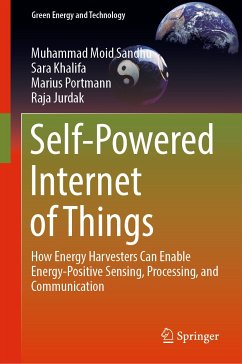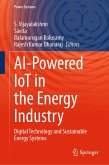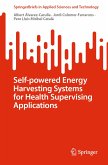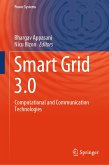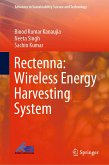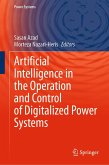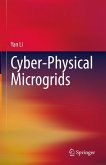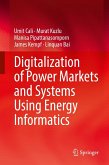This book covers cutting edge advancements on self-powered Internet of Things, where sensing devices can be energy-positive while capturing context from the physical world. It provides new mechanisms for activity recognition without the need of conventional inertial sensors, which demand significant energy during their operation and thus quickly deplete the batteries of internet-of-things (IoT) devices. The book offers new solutions by employing energy harvesters as activity sensors as well as power sources to enable the autonomous and self-powered operation of IoT devices without the need of human intervention. It provides useful content for graduate students as well as researchers to understand the nascent technologies of human activity, fitness and health monitoring using autonomous sensors. In particular, this book is very useful for people working on pervasive computing, activity recognition, wearable IoT, fitness/healthcare and autonomous systems.
This book covers a broad range of topics related to self-powered activity recognition. The main topics of this book include wearables, IoT, energy harvesting, energy harvesters as sensors, activity recognition and self-powered operation of IoT devices. This book starts with the introduction of wearable IoT devices and activity recognition and then highlights the conventional activity recognition mechanisms. After that, it describes the use of energy harvesters to power the IoT devices. Later, it explores the use of various energy harvesters as activity sensors. It also proposes the use of energy harvesters as simultaneous source of energy and context information and defines the emerging concept of energy-positive sensing compared to conventional energy-negative sensing. Finally, it explores sensor/signal fusion to enhance the performance using multiple energy harvesters and charts a way forward for future research in this area.
This book covers all important and emerging topics that have significance in the design and implementation of autonomous wearable IoT devices. We believe that this book will lay the foundation for designing self-powered IoT devices which can ultimately replace the conventional wearable IoT devices which need regular recharging and replacement.
Dieser Download kann aus rechtlichen Gründen nur mit Rechnungsadresse in A, B, BG, CY, CZ, D, DK, EW, E, FIN, F, GR, HR, H, IRL, I, LT, L, LR, M, NL, PL, P, R, S, SLO, SK ausgeliefert werden.

